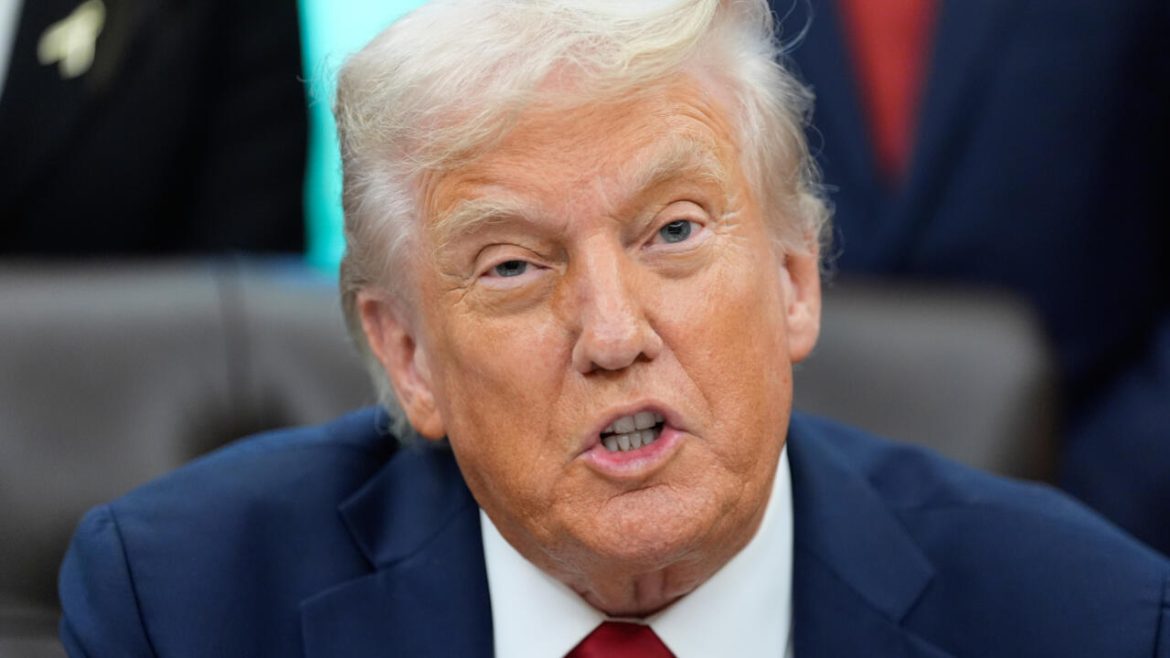Trump Reignites Debate Over South Asian Conflicts
Washington, D.C. — Former U.S. President Donald Trump has claimed that resolving the ongoing tensions between Pakistan and Afghanistan would be very easy for him.
Speaking to reporters at the Oval Office, Trump said he prefers ending wars rather than starting them and is “fully aware” of the current border clashes between the two neighboring countries. He asserted that if he chose to, he could bring an immediate end to the dispute.
I like stopping wars, Trump told journalists, emphasizing his belief that peace can be restored swiftly through strong leadership. His comments come amid renewed border violence between Pakistan and Afghanistan, which has strained diplomatic ties in recent weeks.
Reference to Past South Asian Mediation
During the same conversation, Trump also referenced his earlier claims of playing a role in reducing tensions between Pakistan and India.
Pakistan’s Prime Minister Shehbaz Sharif told me that I saved millions of lives by ending the war between Pakistan and India, Trump said, repeating an assertion he has made several times since leaving office.
While Trump’s claim has not been independently verified, it reflects his continued interest in portraying himself as a potential peacebroker in South Asia — a region marked by complex security and political challenges.
Rising Border Tensions Between Pakistan and Afghanistan
Trump’s remarks come at a time when border clashes between Pakistan and Afghanistan have intensified. Over the past several days, militants operating from the Afghan side have reportedly launched attacks into Pakistani territory, prompting retaliatory strikes by Pakistan’s armed forces. For a detailed look at the history and causes of this ongoing conflict, read Why Afghanistan and Pakistan Are Fighting: Understanding the Border Tensions.
According to local media reports, Pakistani forces targeted militant hideouts across the border, resulting in the deaths of several insurgents. The situation has raised fears of a broader escalation unless both governments manage to sustain ongoing diplomatic efforts.
Temporary Ceasefire and Diplomatic Efforts
To prevent further bloodshed, both sides reportedly agreed to a 48-hour ceasefire, which was later extended.
Diplomatic sources indicate that the Taliban government in Kabul and Islamabad have agreed to maintain this temporary truce until peace talks in Doha conclude.
High-level negotiations between the two countries are expected to begin over the weekend, with international observers closely monitoring the outcome. The discussions, facilitated by mediators in Qatar, aim to establish a longer-term framework for border stability and counterterrorism cooperation.
Broader Context
Pakistan and Afghanistan share a 2,600-kilometer border — known as the Durand Line — which has long been a source of tension due to cross-border militancy and disputes over demarcation.
Analysts say that while Trump’s comments may draw media attention, resolving such conflicts requires sustained diplomatic engagement and trust-building between the two nations — far more complex than any quick-fix solution.
As the region grapples with instability, both countries face mounting pressure to curb extremist activity and strengthen their fragile peace efforts. Whether external actors like Trump can realistically influence that process remains uncertain.















